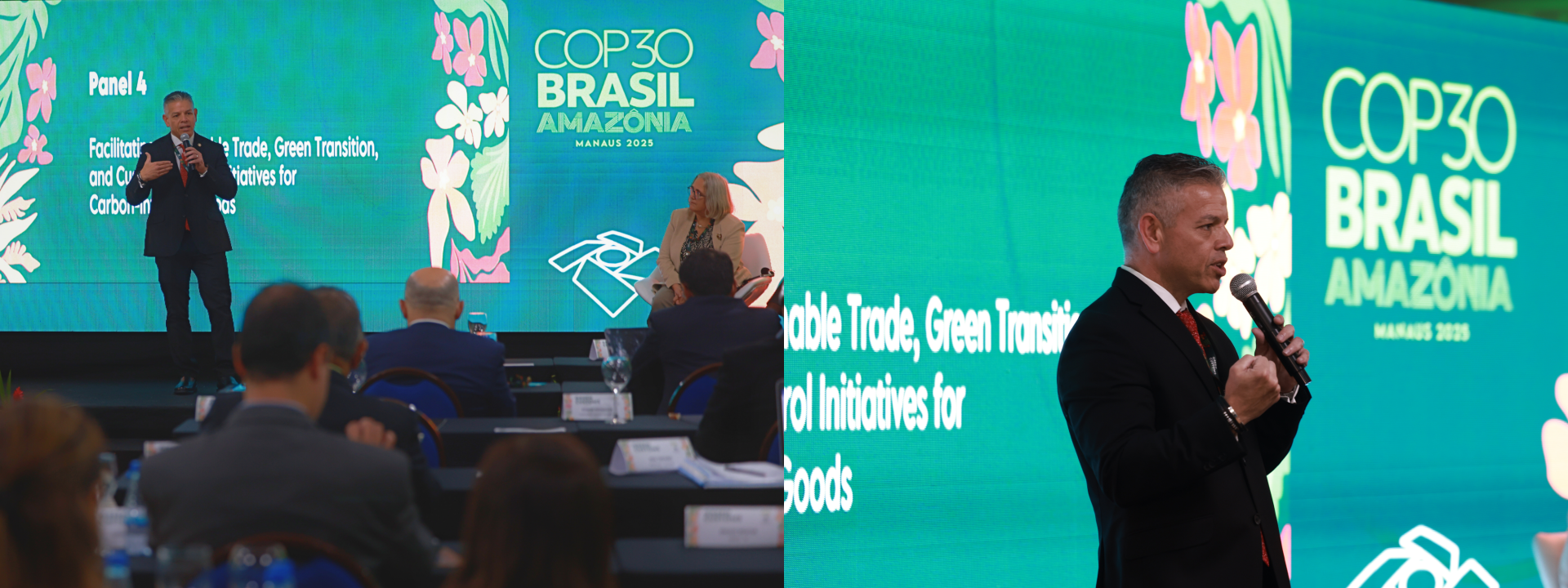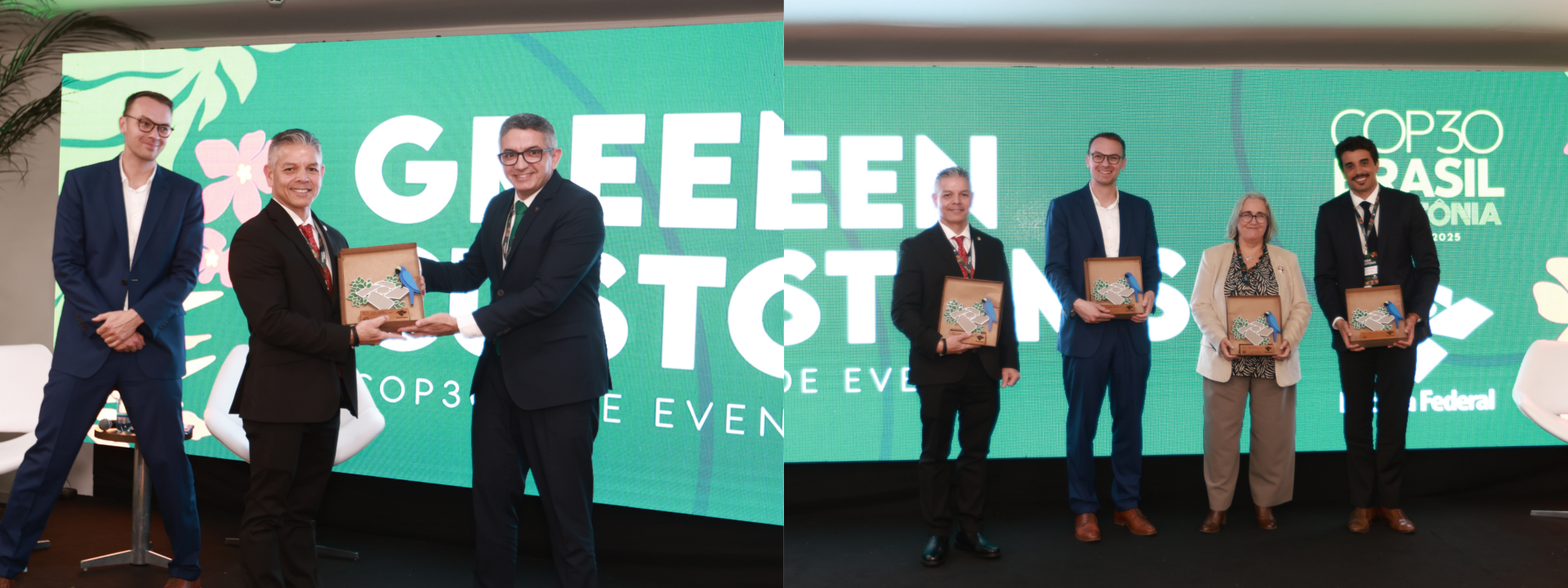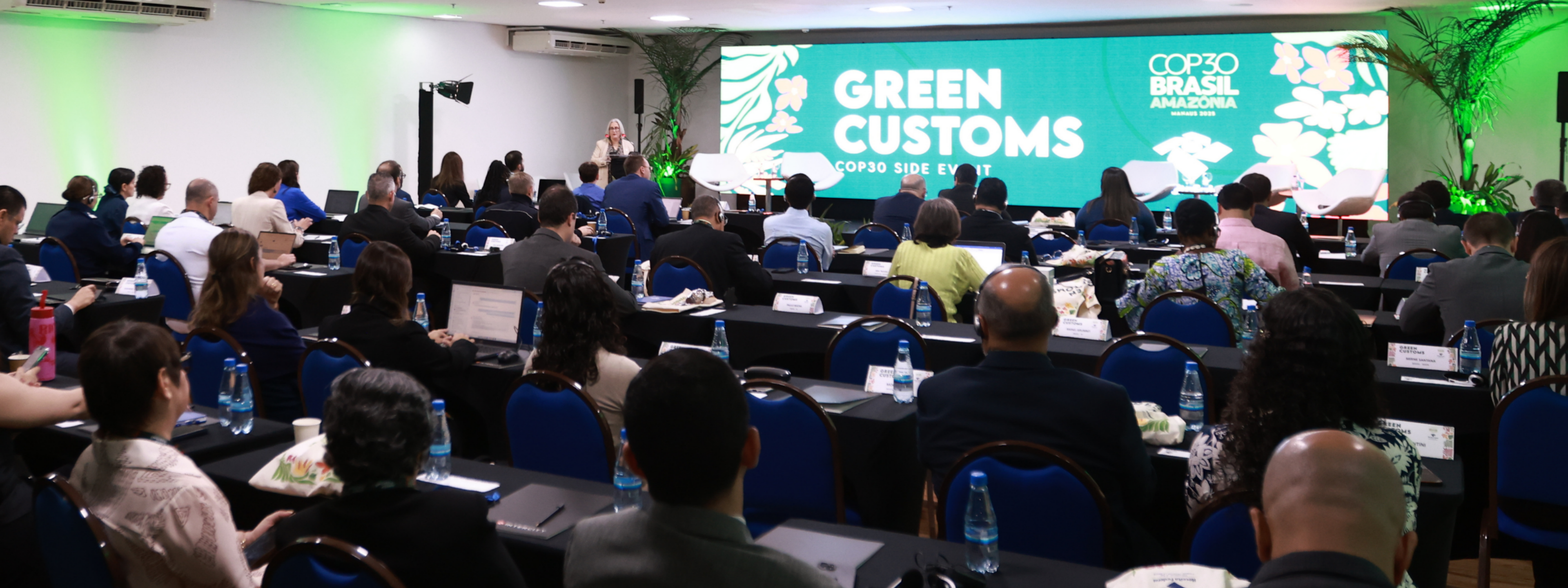Customs authorities, international organizations, and private sector leaders from around the world convened in Manaus, Brazil, from November 12 to 14, 2025, for the historic “Green Customs” event, held in parallel with COP30. Organized by the Special Secretariat of the Federal Revenue of Brazil (RFB), the event highlighted the crucial role of Customs administrations in combating climate change and promoting sustainable trade.
The event was hosted at the Intercity Hotel Manaus over three days and featured high-level keynote speeches, expert panels, and immersive exhibitions, all aligned with the WCO Green Customs Agenda. The agenda was structured around three pillars — BE, DO, and INNOVATE — emphasizing institutional sustainability, operational resilience, and innovation in Customs practices.
Distinguished Participants and Global Collaboration
The event welcomed a distinguished group of participants, including:
- Fabiano Coelho, director general of Customs of Brazil
- Ian Saunders, secretary general of the WCO (via virtual address)
- Gael Grooby, WCO director of Policy and Standards
- Senior Customs officials from Austria, Azerbaijan, the Dominican Republic, Honduras, Portugal, Russia, and the Democratic Republic of the Congo
- Representatives from international organizations such as UNODC, IBAMA, and the Federal Police of Brazil
- Civil society and private sector leaders, including Freeland Brasil, SINDASP, and the World BASC Organization (WBO)

Advancing the Green Customs Agenda
The conference explored a wide range of topics, from reducing the environmental footprint of Customs operations to combating the illicit trade of environmentally sensitive goods. Panels addressed Customs’ role in climate contingency planning, sustainable infrastructure, and the facilitation of trade in green technologies.
A highlight of the event was the panel titled “Facilitating Sustainable Trade, Green Transition, and Customs Control Initiatives for Carbon-Intensive Goods,” where Erik Moncayo, international president of the World BASC Organization (WBO), delivered a presentation titled “Sustainability Must Be a Bridge, Not a Barrier.”

During his address, Moncayo emphasized the need for Customs administrations and the private sector to work hand in hand to accelerate the transition to a low-carbon economy. “Customs can act not only as regulators but as facilitators of change — driving the adoption of sustainable practices across borders and industries,” he stated.
He outlined four strategic priorities:
- Tangible Incentives: Advocate for expedited clearance and recognition under Green Authorized Economic Operator (AEO) programs to reward environmentally responsible traders.
- Clear Guidance and Metrics: Call for harmonized standards and transparent compliance tools to help companies — particularly SMEs — navigate complex environmental regulations such as the EU Deforestation Regulation (EUDR) and the Carbon Border Adjustment Mechanism (CBAM).
- Tiered Trusted Trader Programs: Propose a multi-level Green AEO model to encourage continuous environmental improvement and recognize leadership in sustainable logistics.
- WCO Leadership: Support the development of a “WCO Green Customs Framework of Standards” to unify global efforts and provide a roadmap for integrating climate criteria into Customs operations.
Moncayo concluded with a powerful message: “Sustainable trade is not only about reducing emissions, but about strengthening responsible supply chains that drive prosperity without compromising the environment.”
Looking Ahead
The event concluded with a recap session outlining next steps to integrate sustainability into Customs operations worldwide. As COP30 continues in Brazil, the Green Customs side event underscored how Customs administrations can lead the charge toward a greener and more resilient global trading system.


